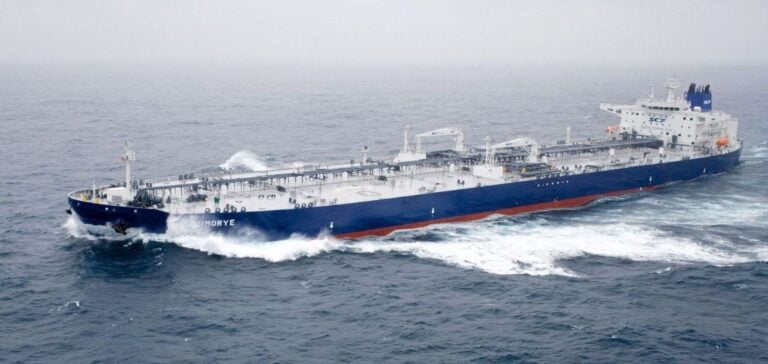Russian crude oil exports continue to evolve under the pressure of Western sanctions.
In August, Sovcomflot, the Russian shipping operator, maintained its share of crude oil exports outside the G7 sanctions framework at 81.5%.
These exports are mainly destined for India and China, two countries that do not follow the restrictions imposed by the United States and its allies.
Data from S&P Global Commodities at Sea and Maritime Intelligence Risk Suite show that Sovcomflot carried 20.9 million barrels in August, compared with 12.8 million in July, despite increasing logistical and financial challenges.
On September 2, 2024, the U.S. Treasury Department’s Office of Foreign Assets Control (OFAC) imposed sanctions on three additional Sovcomflot vessels.
These vessels, managed by companies based in the United Arab Emirates, were accused of using U.S. services to transport Russian crude oil above the $60-per-barrel cap, in violation of rules established by the G7 coalition and its partners.
This action adds to ongoing US efforts to limit Russian oil revenues and increase pressure on operators involved in the Russian oil trade.
Adapting to Sanctions and Circumvention Strategies
Western sanctions, such as the ban on shipping services for Russian oil sold above $60 per barrel, have forced Sovcomflot to adopt circumvention strategies.
In response to these sanctions, Sovcomflot has moved some of its vessels under the management of companies based in the United Arab Emirates, enabling them to evade certain restrictions.
Recent additions to the sanctions list show that the US authorities are ready to target all entities that facilitate evasion of the price ceiling rules.
According to an analysis recently published by the US Treasury, these reinforced sanctions force Russia to sell its oil at prices lower than those on the world market, thus limiting its financial resources.
This new phase in the sanctions strategy aims to further constrain Russia while minimizing disruption to the global energy market.
The price of Urals oil on an FOB Primorsk basis stood at $67.204 per barrel in August, while ESPO crude on an FOB Kozmino basis reached $71.625, both above the G7 ceiling.
Consequences for the Global Tanker Market
The predominance of non-G7 tankers in the transport of Russian crude has implications for the global tanker market.
The new US sanctions demonstrate Washington’s ongoing commitment to maintaining market stability while reducing the profits Russia uses to finance its military operations.
The United States, in collaboration with its coalition partners, will continue to strengthen its monitoring and sanctions enforcement measures in the weeks and months ahead.
Since the price cap came into force, the average age of tankers carrying Russian oil under sanctions is 16.5 years, compared with 13.3 years for those complying with the price limits.
This indicates a gradual aging of the fleet, potentially leading to higher operating costs in the long term.
In August, some 81.5% of Russian crude oil exports were carried by tankers not associated with the G7 countries, the European Union, Australia, Switzerland and Norway, nor insured by Western protection and indemnity clubs.
This proportion, although slightly down on July (82.7%), remains high, indicating the complexity of Russian adaptation to international sanctions.





















